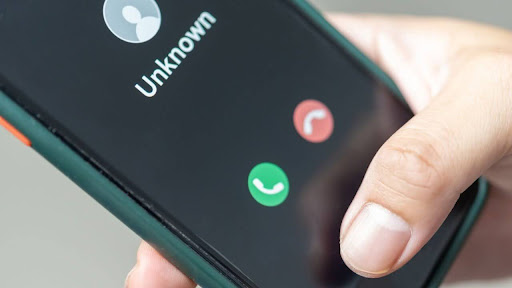How to Find Out Who a Phone Number Belongs To?

These days, you can’t trust every number that pops up on your phone. Scammers are getting scarily smarter, spoofing local numbers, so you’re more likely to pick up. You might also get calls from job recruiters, businesses, or even someone trying to reconnect – but without a name attached, how would you know?
You have options! For one, you can gamble on whether to answer, try to DIY the search for who does this phone number belong to, or go for a quick reverse lookup free trial by GEOfinder that will give you the full picture. So, in this article, we’ll explain how to use any of these methods and suggest the best one among them. Read on!
Use a Reverse Phone Lookup Service
When you have an unknown caller, one of the easiest ways to check who does this phone number belong to is GEOfinder’s reverse phone lookup – just type it in, and it scans through public records, social media, and online databases to pull up everything it can find:
- Full name: You can get the person’s actual name instead of just a mystery number avoiding awkward “Who is this?” texts.
- Home address: Now, you’ll be able to find their current and past addresses! This is especially useful if you’re trying to track down an old friend, verify someone’s identity, or just see if that unknown number is tied to a real location.
- Family members: Ever get a call from a number that seems familiar? GEOfinder can show you possible relatives of the owner, so you might realize, “Oh, that’s my cousin’s new number!” or “Wait, this is my ex’s mom… what does she want?”
- Social media profiles: If their number is linked to Facebook, Instagram, or LinkedIn, you can check their profiles and get a better idea of who they are before deciding whether to call back. Super useful for spotting fake identities.
- Email addresses: If the number is tied to an email, you’ll see it. This is great if you’d rather send a message than call – or if you want to check if an online seller or job recruiter is actually legit.
- Location history: Some numbers have a travel history, so if it’s a burner phone or a scammer that’s been bouncing between locations, you might be able to tell.
- Web activity: Ever get a call from a weird number and wonder if it’s tied to a scam? GEOfinder can pull up forums, websites, or reports linked to the number.
Perform a WHOIS Lookup (For Business Numbers)
When someone registers a website, they have to provide certain details – like the owner’s name, email, phone number, and business address. A WHOIS lookup lets you pull up this info, giving you a quick way to verify if a company is real or just another scam operation running a fake website. That being said, you can use it to find who does this phone number belong to if you:
- Find their website: If a company calls you out of the blue, check if they even have a website. If they don’t mention one, Google their name along with “official site”.
- Run a WHOIS search: Use a free tool like Whois.com, ICANN WHOIS, or Whois Lookup. Just paste the website URL and hit search.
- Look at the details: These include the owner’s name (either a listed company name or domain protection service), email address, phone number (the reason you needed all of this in the first place), business location, and domain registration date.
The problem is that many legit companies use privacy protection, so you won’t always see an owner’s name. Plus, this method won’t work for personal numbers – WHOIS only checks websites, so if an individual calls you, this won’t help.
Look for Public Records or Business Listings
If a phone number seems important – maybe a lawyer, a local contractor, or some company reaching out about service – you can check public records and business listings to see if they’re legit. This works especially well for businesses, professionals, and even landlords or property managers.
- Google search: The easiest first step. Just type the number into Google and see what comes up. If it’s tied to a business, you might find their website, social media, or customer reviews. If it’s a scam, chances are someone has already reported it.
- Business directories: If the number belongs to a company, check listings like Google Business Profile (a real company should have a listing with their address, hours, and customer reviews), Better Business Bureau (to see if the business is accredited and has any complaints against it), Yelp or Trustpilot.
- Government and licensing websites: If the caller claims to be a lawyer, real estate agent, or contractor, check official databases like state licensing boards, county property records, and Chamber of Commerce Listings.
- People search websites: If you’re looking up an individual (not a business), sites like Spokeo, Whitepages, or TruePeopleSearch might show public records tied to the number, like addresses and known associates.
One downside of checking public records or business listings is that not every number is listed – many small businesses, freelancers, and individuals don’t register their contact info. Even when records exist, they can be outdated or incomplete, especially if a business has changed numbers or locations. Plus, some databases also require payment or special access, making it harder to get full details.
Use Caller ID Apps to Find Who Does This Phone Number Belong To
By now, you’ve probably tried Googling a number, checking business listings, or even running a reverse lookup. And, well, who has time to do that for every random call? That’s where caller ID apps come in to do the detective work for you by pulling from huge databases of reported numbers, business records, and scam alerts to tell you who’s calling before you pick up. An app like this cross-checks the number and gives you info on the number, such as:
- Who’s actually calling: If the number is tied to a business, government office, or even a regular person, you’ll see a name instead of just a bunch of digits.
- Scam & spam alerts: If the number has been reported as a robocall, telemarketer, or scam, the app will slap a big red warning on it.
- Business details: Say a delivery company or a doctor’s office calls, but you don’t recognize the number. Some apps can show the company name, location, and even reviews, helping you tell real businesses from not-so-legit operations.
- User reports & reviews: Lots of people get five calls in one day from the same persistent telemarketer. Caller ID apps let users leave notes like “Fake debt collector, don’t answer” or “Legit pharmacy calling about a prescription”.
- Auto-blocking features: Some apps can silence unwanted numbers completely, so you don’t even have to deal with the ringing.
We’re fully aware that this method sounds like a dream, but the truth is – it’s not perfect. Caller ID apps don’t always catch new scam numbers, so some might still slip through, and some collect your call history or contacts to improve their database. Also, if someone is calling from a blocked or private number, no app can magically reveal who they are.
Contact the Phone Carrier
If you’ve tried everything else – WHOIS lookup, caller ID apps, and even checking public records – and still have no idea who’s on the other end of the line, your phone carrier might be your best shot. While they can’t always give you the caller’s personal details, they can sometimes track down or block the number for you, which is especially helpful if you’re dealing with spam calls, harassment, or restricted (or private) numbers that won’t quit. They can:
- Identify the caller: Some carriers have extra features that dig deeper than basic caller ID apps. If a number isn’t showing up anywhere else, they might still have data on it.
- Block or filter calls: All the big carriers (Verizon, AT&T, T-Mobile) have options to automatically block scam calls or flag suspicious numbers. These features work pretty well, so you won’t be bombarded by robocalls. Plus, you can report calls to your carrier, and they’ll update their systems to block similar numbers in the future.
- Report harassment or fraud: If a caller is harassing you or scamming you, your carrier can step in. They’ll file a report, and in extreme cases, they can even work with law enforcement to help track down the source of the calls.
- Trace restricted or private numbers: Getting calls from a private or blocked number? Carriers might be able to trace where the call came from, especially if you’re dealing with harassment, though they won’t always give you that info directly.
Of course, you should remember that while your carrier can help, they’re not going to magically reveal everything about every caller. Privacy laws mean they can’t give out personal info about callers unless it’s a serious case. So, do keep it in mind.
Conclusion
If you’re being bombarded with calls from an unknown person and trying to figure out who does this phone number belong to, GEOfinder’s reverse phone lookup is your best bet. It’s quick, easy, and pulls up all sorts of details like social media profiles, addresses, and even web activity. Sure, other methods like WHOIS, public records, or caller ID apps are helpful, but they’ve got their flaws – such as missing private numbers or providing outdated info. So, if you want to know exactly who’s calling (and whether it’s worth picking up), GEOfinder’s your best option.






